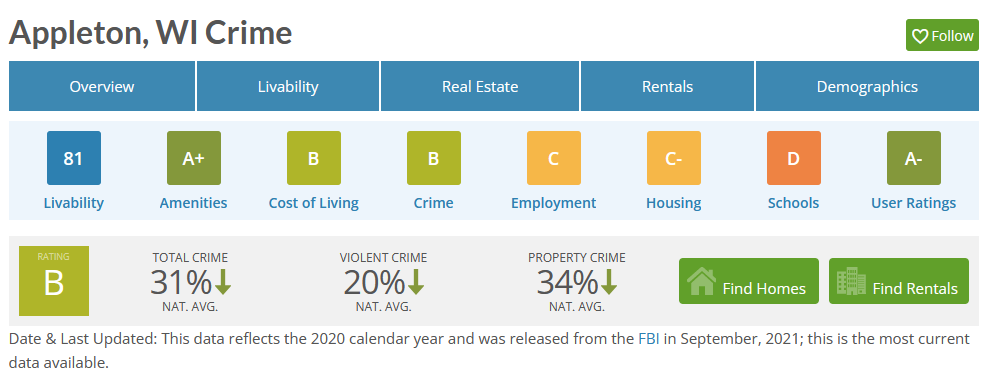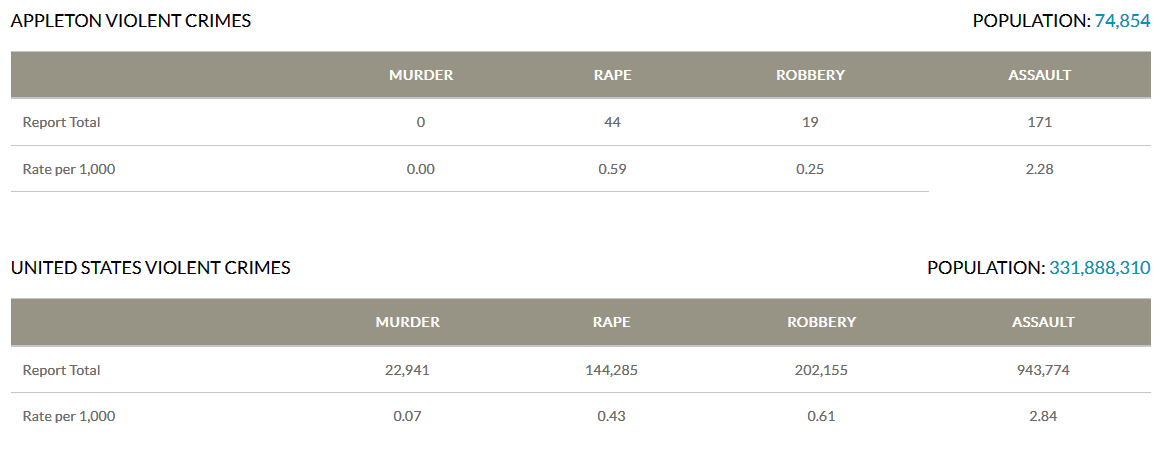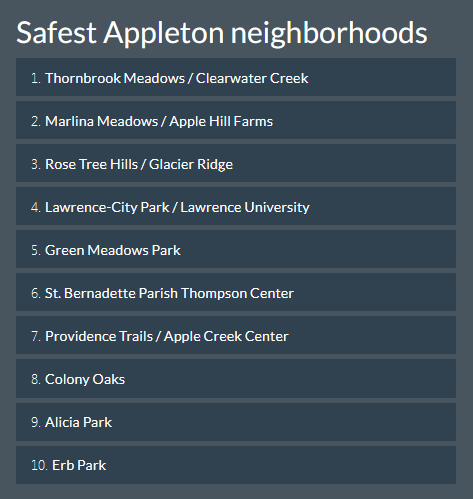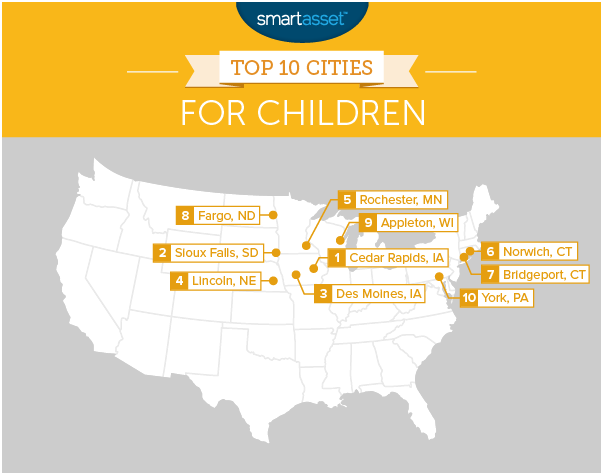According to the 2020 Census, Appleton had a population of 75,644 people residing in 29 neighborhoods. It is the sixth largest city in Wisconsin behind Milwaukee, Madison, Green Bay, Kenosha, and Racine. Appleton is the largest city in the Fox Cities, a metropolitan area that is the third largest in the state.
According to Wikipedia, citing the American Community Survey, “the median income for a household in the city was $61,475, and the median income for a family was $76,791. Male full-time workers had a median income of $51,431 versus $41,564 for female workers. The per capita income for the city was $33,282.”
Areavibes, a company that produces a “Livability Score” for cities across the country, gives Appleton an A+ for its amenities, Bs for cost of living and crime, Cs for employment and housing, and a D for its schools. Appleton’s high amenities score is due to its having “the most nearby amenities from each of the following categories: Groceries, food & drink, shopping, coffee shops, schools, parks, entertainment, fitness facilities, public transportation, and libraries.

Areavibes, citing FBI data, finds the city’s total crime rate (per 1,000 people) is 31% below the national average, the violent crime rate is 20% below the national average, and the property crime rate is 34% below the national average. See the chart below. However, AreaVibes also finds the rate of rapes in Appleton is higher than the national average, 57.9% versus 38.4%.
According to Neighborhood Scout, a “platform owned and operated by Location, Inc., builders of location-based Big Data and intelligence for the Fortune 1000 and beyond,” Appleton is …
… neither predominantly blue-collar nor white-collar, instead having a mixed workforce of both blue-collar and white-collar jobs. Overall, Appleton is a city of sales and office workers, professionals, and managers.
There are especially a lot of people living in Appleton who work in office and administrative support (13.63%), management occupations (11.42%), and sales jobs (11.02%).
Also of interest is that Appleton has more people living here who work in computers and math than 95% of the places in the US.
The education level of Appleton citizens is substantially higher than the typical US community, as 30.50% of adults in Appleton have at least a bachelor’s degree.
Neighborhood Scout, citing 2021 data released by the FBI in 2022, reports Appleton’s violent crime rate of 3.13 per 1,000 people is slightly less than the statewide average of 3.24 and less than the national median average of 4.0. According to the FBI, zero murders, 44 rapes, 19 robberies, and 171 assaults occurred in Appleton in 2021. The rate per 1,000 people of rape, at 0.59, was higher than the national rate of 0.43. See the graphic below.

The ten safest neighborhoods in Appleton, according to Neighborhood Scout, appear in the nearby graphic.

Appleton scores high on national rankings for being “kid-friendly.” One ranking produced by Smartasset, a financial services company, uses a long list of variables including air and water quality, the percentage of uninsured children in each metro area, the child mortality rate, high school graduation rates, student academic achievement, and the cost of living. Appleton ranked ninth in the entire country in both the 2015 and 2016 editions of the Smartasset study. (See graphic nearby.) The study apparently has not been updated since then. The company explains, “While less than 50% of [Appleton’s] students are proficient in math and reading, the metro area ranks well when it comes to its air and water quality. Plus, it’s among the metros with the highest high school graduation rates.”


